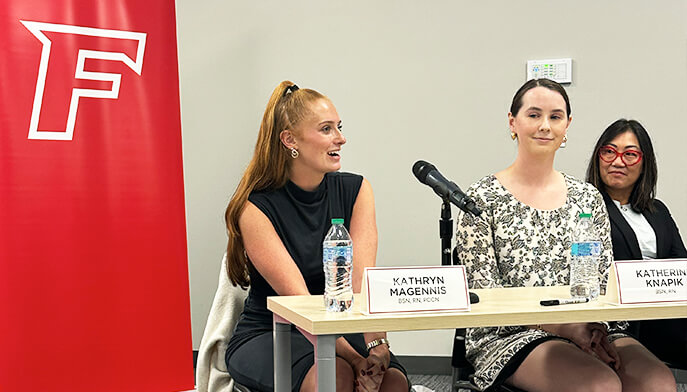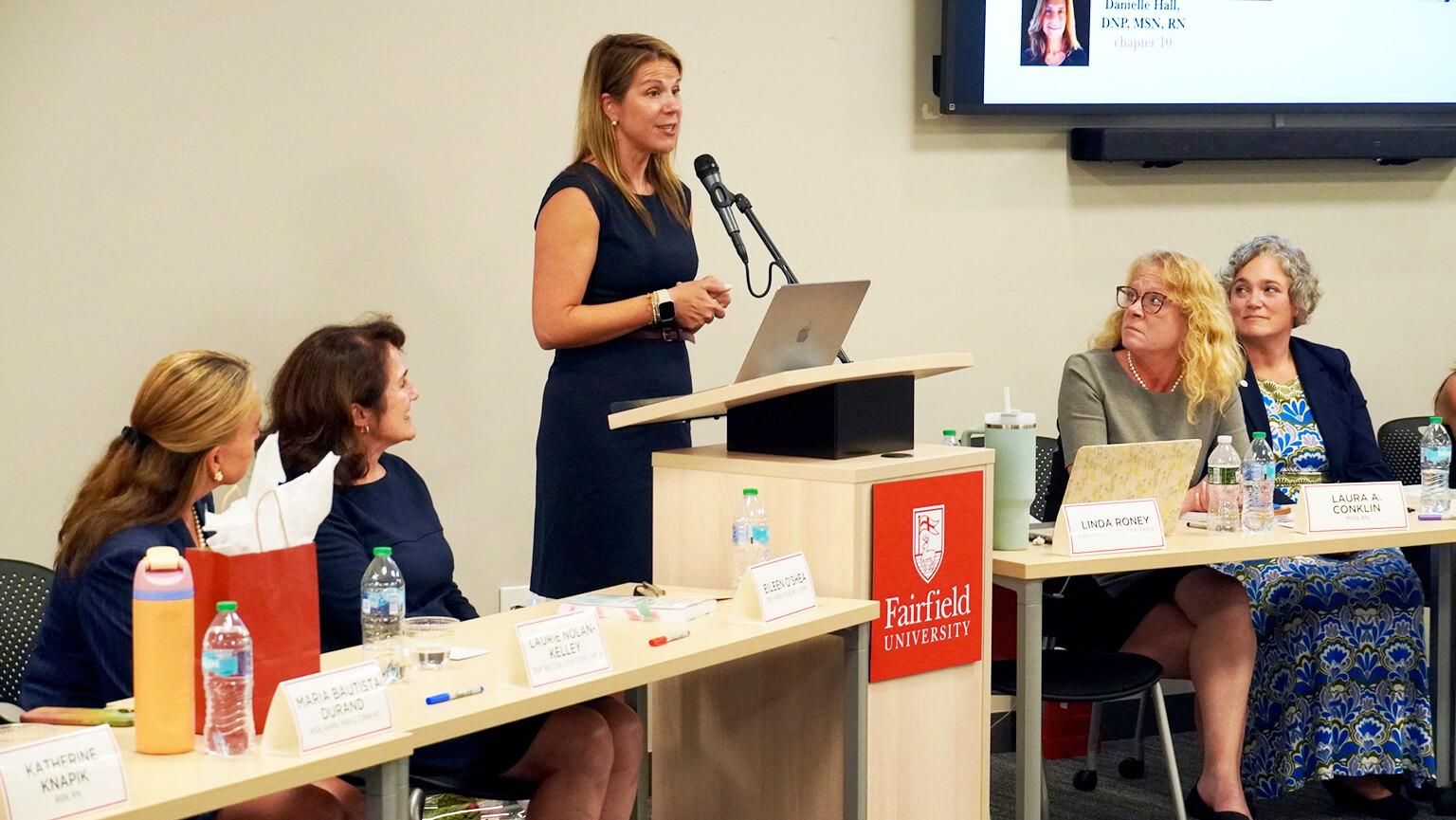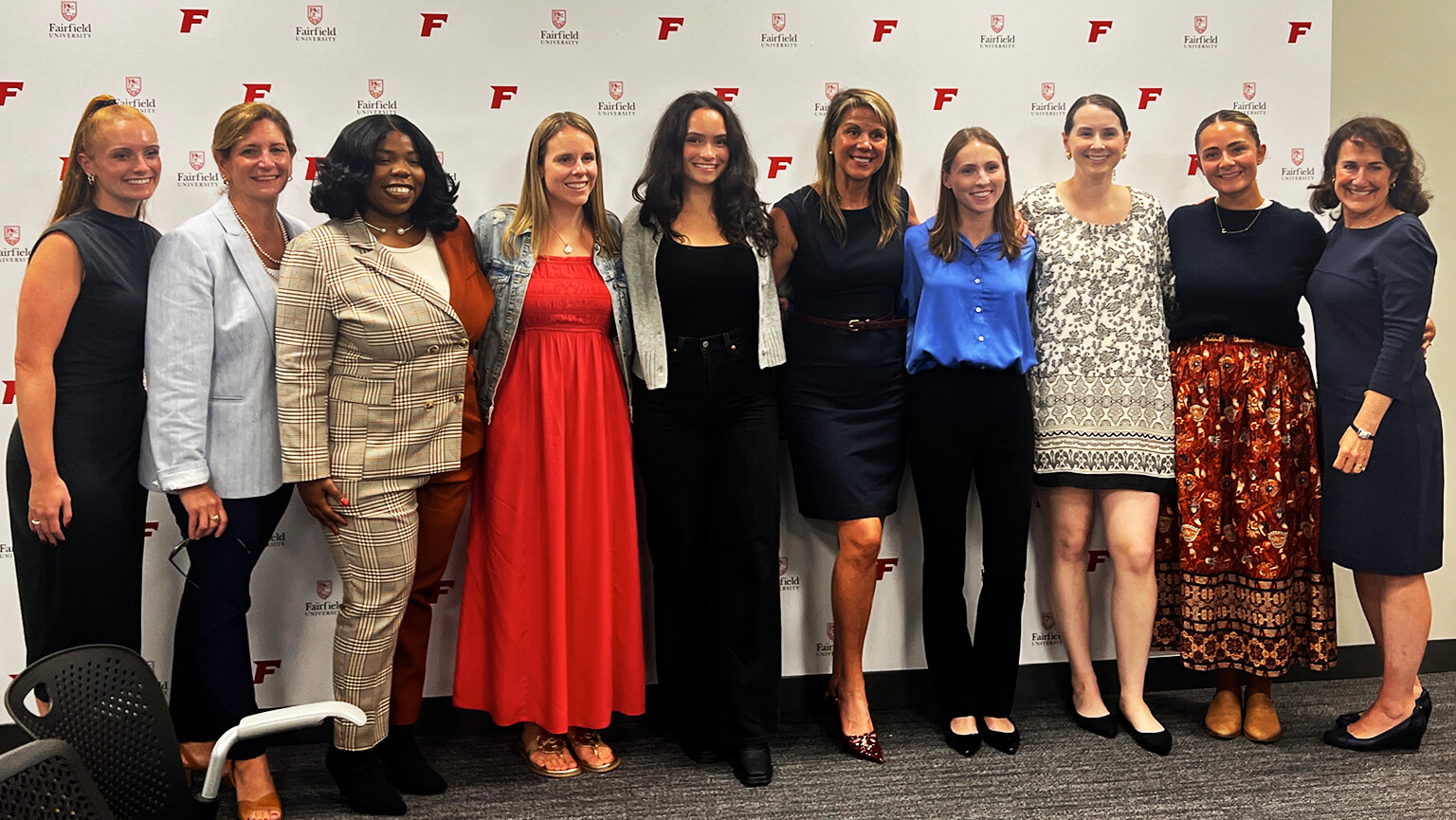
Egan School young alumni and nursing faculty members shared experiences and reflections at the first Campus Connect event of the academic year.
When Kathryn (Katie) Magennis ’22, BSN, RN, PCCN, took her first job out of college, the Fairfield University nursing graduate did not expect to form close bonds with her patients. Despite working at a comprehensive cancer care institution, she thought that her position in the fast-paced environment of the emergency room might shield her from the devastating emotional impact of death. “It happened anyway,” she said.
Magennis recently shared her story on patient loss during a panel discussion with 16 contributors to a new textbook, An Empowering Leadership Guide for Emerging Nurses: Surviving the Shift. Edited by Linda Roney, EdD, RN-BC, CPEN, CNE, FAAN, professor of nursing at the Marion Peckham Egan School of Nursing and Health Studies, and published earlier this year by Cognella Academic Publishing, the book explores a variety of themes related to early nursing experiences.
The panel discussion, hosted at the Fairfield University Store in downtown Fairfield, Conn., mirrored the unique format of the book: each novice nurse shared experiences and challenges related to a specific theme, after which an experienced nurse leader reflected upon the account.
Eileen O’Shea, DNP, APRN, PCNS-BC, CHPPN, professor of nursing and director of the Kanarek Center for Palliative Care Nursing Education, responded to Magennis’s narrative. In a moving account of her own from years past, Dr. O’Shea described trying to deal with grief and understand professional boundaries after the death of a preschooler whose illness had no treatment or cure.





